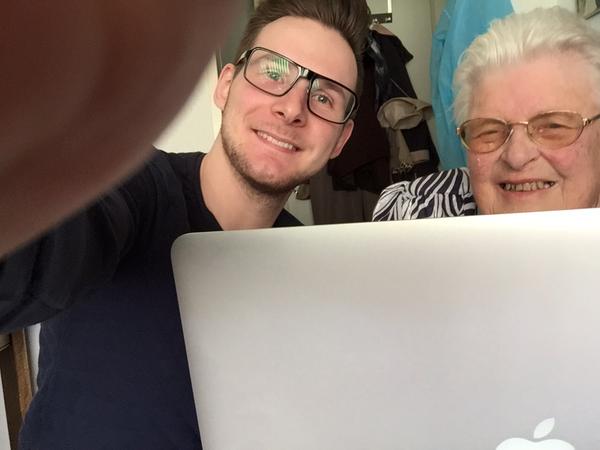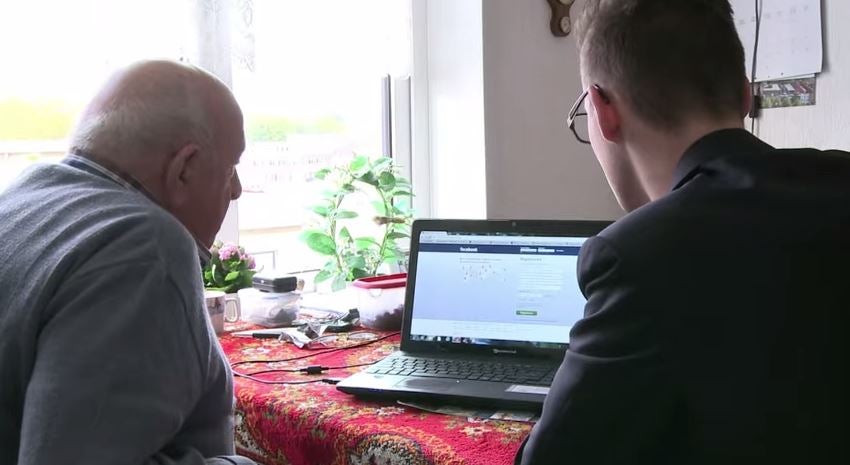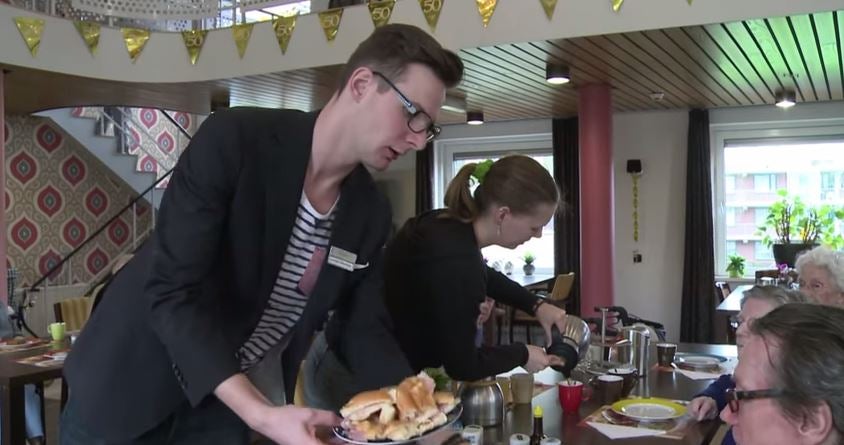Students move-in with residents in Dutch nursing home and help combat social isolation and depression among elderly
Students enjoy giving the seniors computer lessons, cooking for them – and just 'hanging out'

Your support helps us to tell the story
From reproductive rights to climate change to Big Tech, The Independent is on the ground when the story is developing. Whether it's investigating the financials of Elon Musk's pro-Trump PAC or producing our latest documentary, 'The A Word', which shines a light on the American women fighting for reproductive rights, we know how important it is to parse out the facts from the messaging.
At such a critical moment in US history, we need reporters on the ground. Your donation allows us to keep sending journalists to speak to both sides of the story.
The Independent is trusted by Americans across the entire political spectrum. And unlike many other quality news outlets, we choose not to lock Americans out of our reporting and analysis with paywalls. We believe quality journalism should be available to everyone, paid for by those who can afford it.
Your support makes all the difference.What do you do when you’re stuck in student housing and are fed-up of the noise and poor conditions? Call-up your local nursing home, of course.
That’s exactly what one Dutch student, Onno Selbach, did when the student halls at his university in the city of Deventer, Netherlands, became too much.
Now, the nursing home, Humanitas, has been successfully bridging the gap between young and old by letting other local university students live there for free, on one condition – they must spend 30 hours each month with the 160 senior residents.
The director of the home, Gea Sijpke, was only too happy to collaborate with the students in order to design an exchange programme which would combat the social isolation and loneliness in older men and women which increases mortality, according to a study into the topic.


Staff at the home have since reported how feelings of disconnectedness have been battled as the students undertake a variety of activities with the older residents, including watching sports, celebrating birthdays and, perhaps most importantly, offering company whenever a resident falls ill.
Speaking with PBS NewsHour, Ms Sijpke spoke of how the presence of the students in the home has altered daily life and added: “The students bring the outside world in; there is lots of warmth in the contact.”
Another one of the teens, 19-year-old urban planning student, Jurriën Mentink, described how he enjoyed giving the seniors computer lessons, cooking for them – and sometimes just “hanging out.”
Speaking with the Australian Broadcasting Corporation (ABC), he added: “Elderly people are very full of life. As a student, you can learn a lot.”
The students have reported how they have sometimes been put-off their studies by the hard-of-hearing residents who turn the volume up on the TV too loud.
However, this fact seems trivial when the worst happens and the students are forced to keep level-headed: “My neighbour in front of me, she died. That’s the sad part, of course. Sometimes it takes a blow,” Jurriën told ABC.
With the UN now forecasting that more than 20 per cent of the world’s population will be over the age of 60 by the year 2050, it seems the need for such initiatives could become crucial and this programme could be the answer as it looks set to take off across the globe.
According to the International Association of Homes and Services for the Ageing, a similar program, which began in Barcelona in 1996, has been repeated in more than 20 cities throughout Spain, with programmes being launched in France and Ohio also.
Join our commenting forum
Join thought-provoking conversations, follow other Independent readers and see their replies
Comments